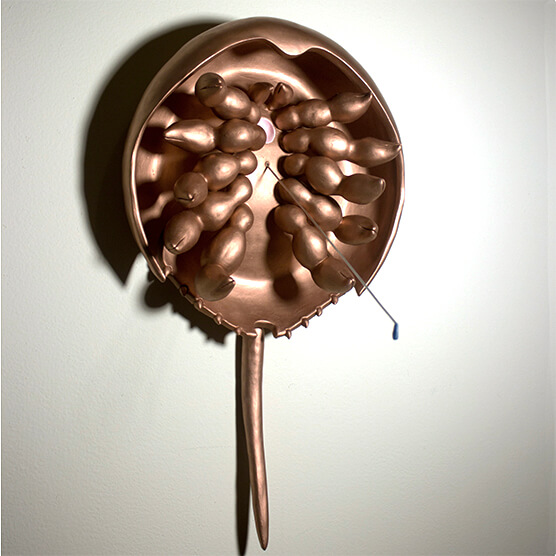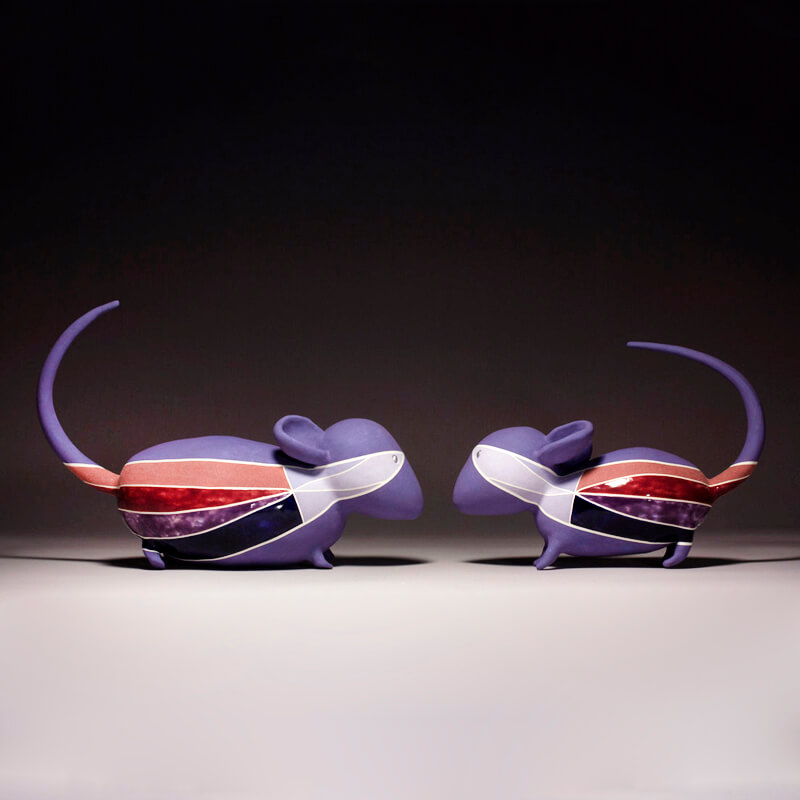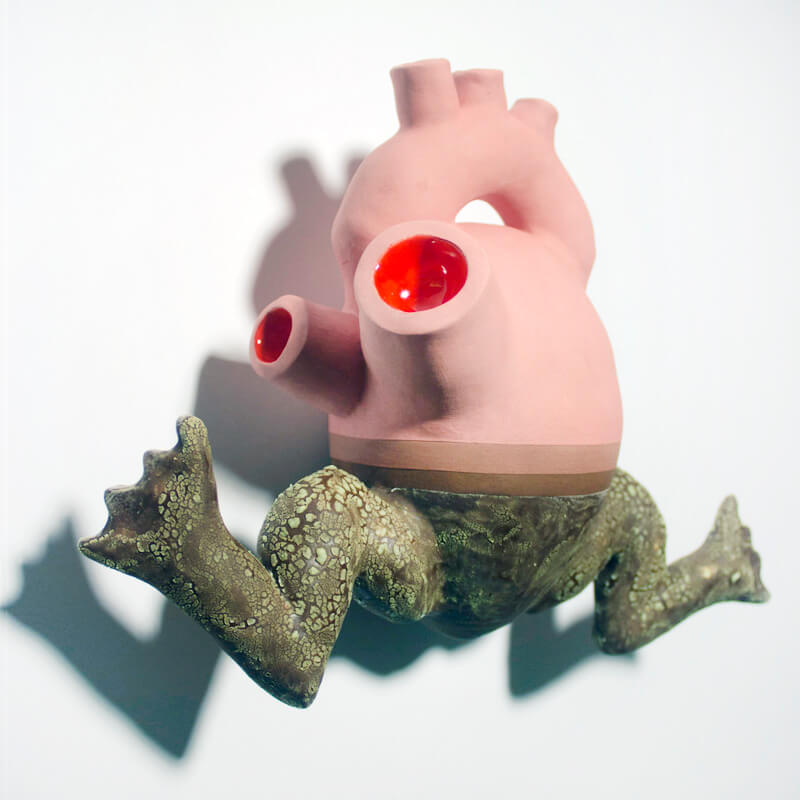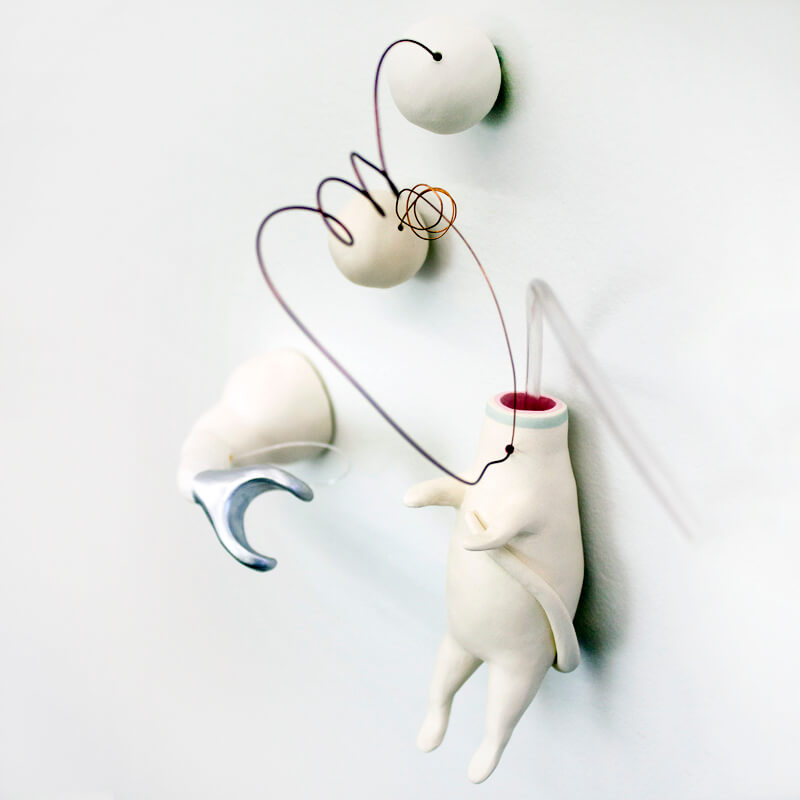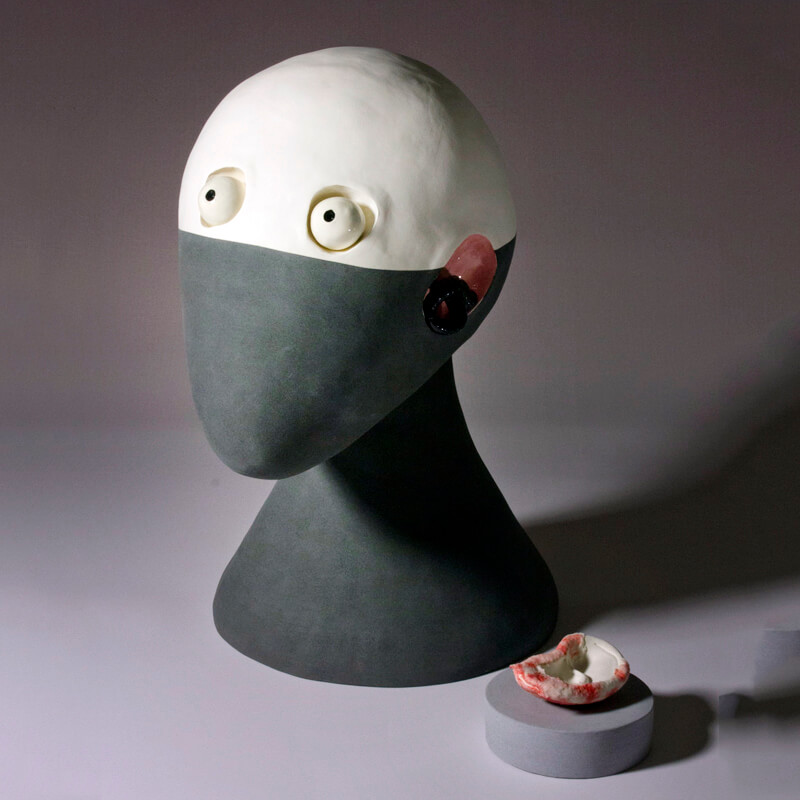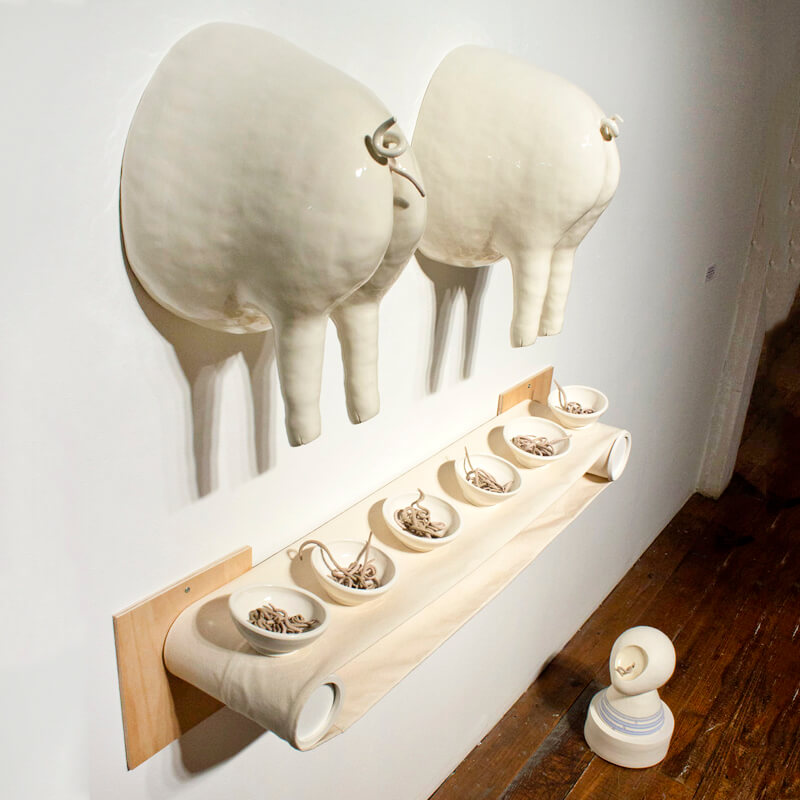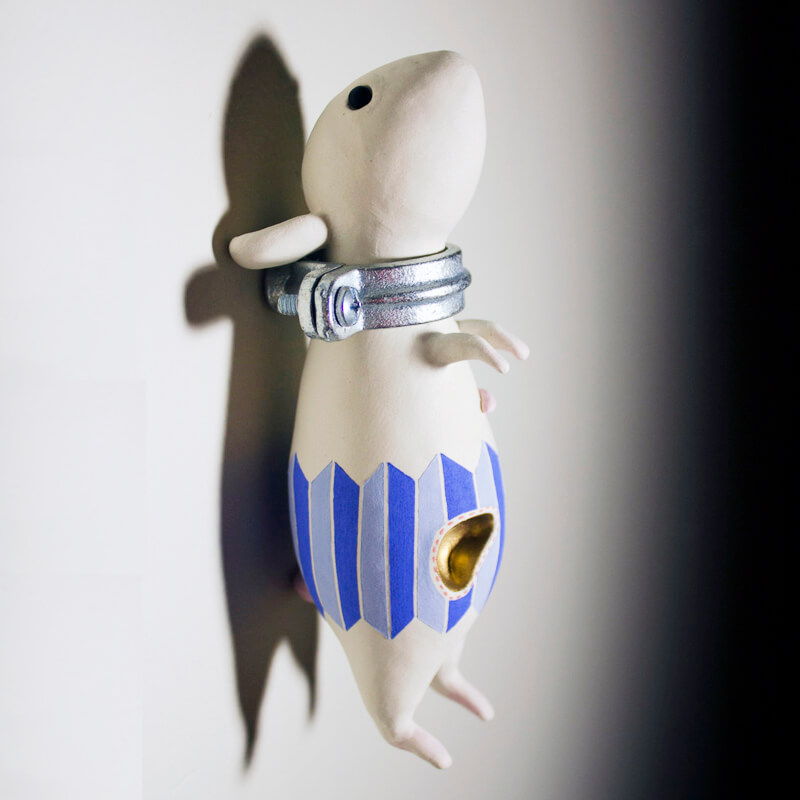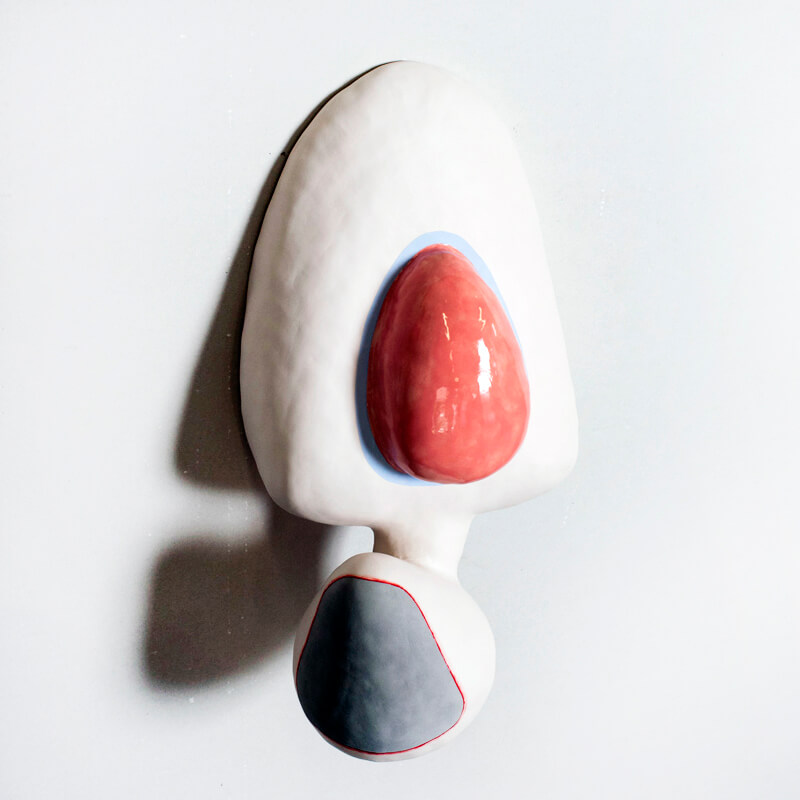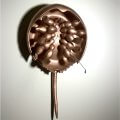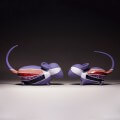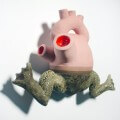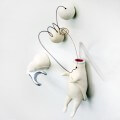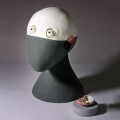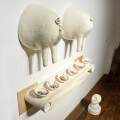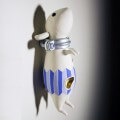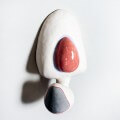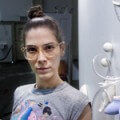
Red Lodge Clay Center – Short-Term Resident 2016
Angela lives and works in Chicago, IL. She exhibits widely and has been awarded a number of grants and artist residencies. These include those from the Luminarts Cultural Foundation and the Joan Mitchell Foundation. Angela earned her MA and MFA from the University of Iowa, concentrating in ceramics. Dieffenbach is a full-time Lecturer of Art and Design at Chicago State University running the ceramics program.
Angela’s current residency at the Red Lodge Clay Center is funded through a generous grant awarded by the Luminarts Cultural Foundation
Inspired by strange experiments and medical innovations, my work explores biology with an emphasis on medicine. Modern medical practices are pushing boundaries between human and animal identity, especially in terms of transplants, animal derivative drugs, and in biologic constructions.
The work is partially a response to the complicated relationships animals have with the medical industry. I am particularly drawn to the role reversal of creatures, used for and in healthcare practices, and the resulting psychology and irony. The changing role of the mouse best exemplifies this idea. A carrier of disease, and an animal typically considered a pest, is now a mainstay of scientific research and a critical tool in finding new drugs and treatments. Much of our understanding of the human body has resulted from the study of mice. In addition to mice, I reference other animals whose connections to the medical industry are less commonly known.
I am also influenced by medicinal parasite consumption and the hygiene hypothesis. According to the Medical Dictionary for the Health Professions and Nursing, the hygiene hypothesis is the idea that “improved cleanliness and modern medical care may be lowering the ability of people to deal with otherwise nonlethal pathogens and disease”. Third world aliments, such as parasites, are being prescribed as costly, modern treatments. More specifically, whipworm eggs are being used as a therapy for a wide range of diseases, and biotechnology companies are now harvesting this pig parasite.
As our world becomes increasingly post-natural, especially with the altering of animal and human anatomies, we are entering uncharted territory. Medical breakthroughs bring new possibilities along with complex and compelling issues.

